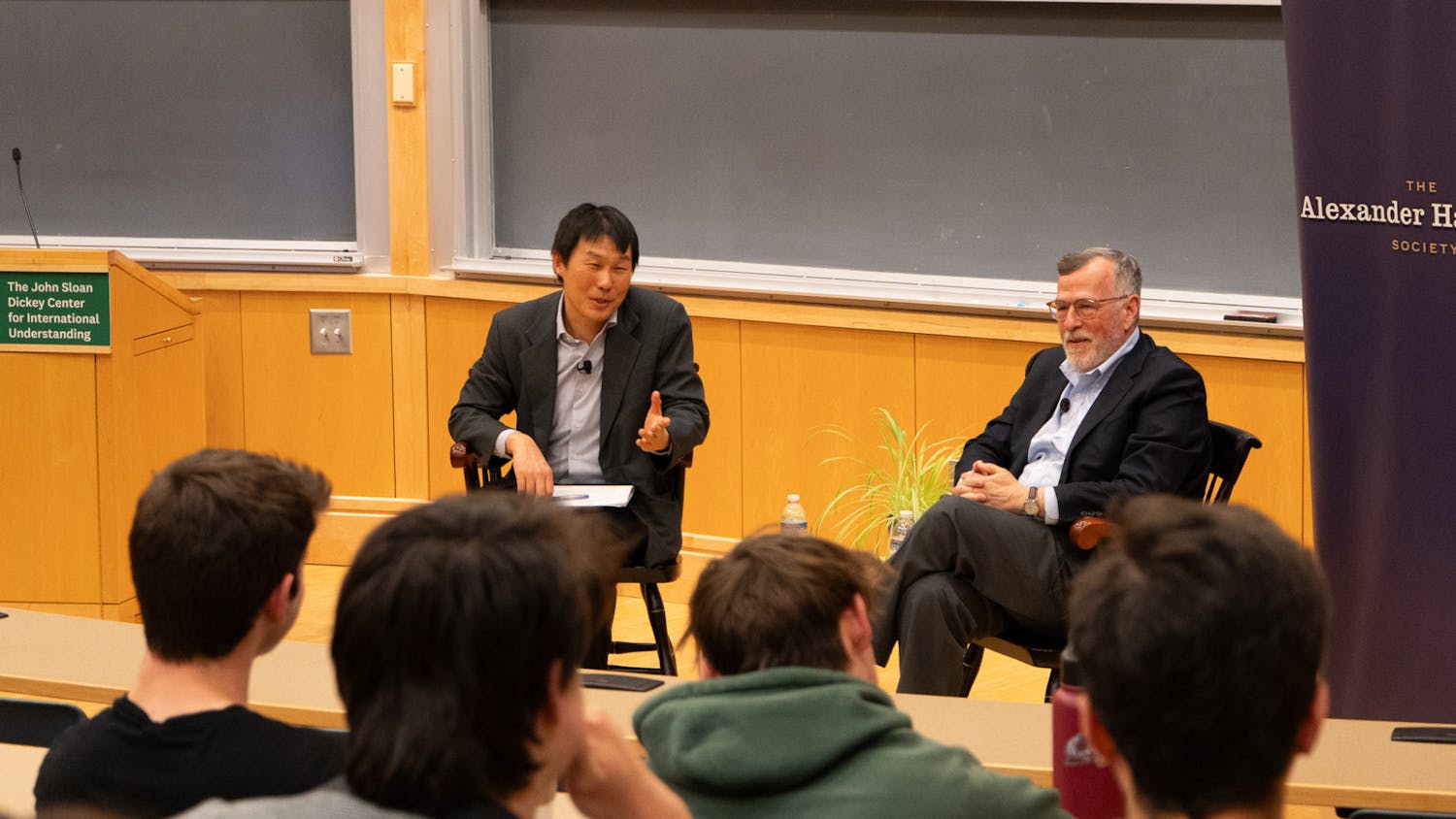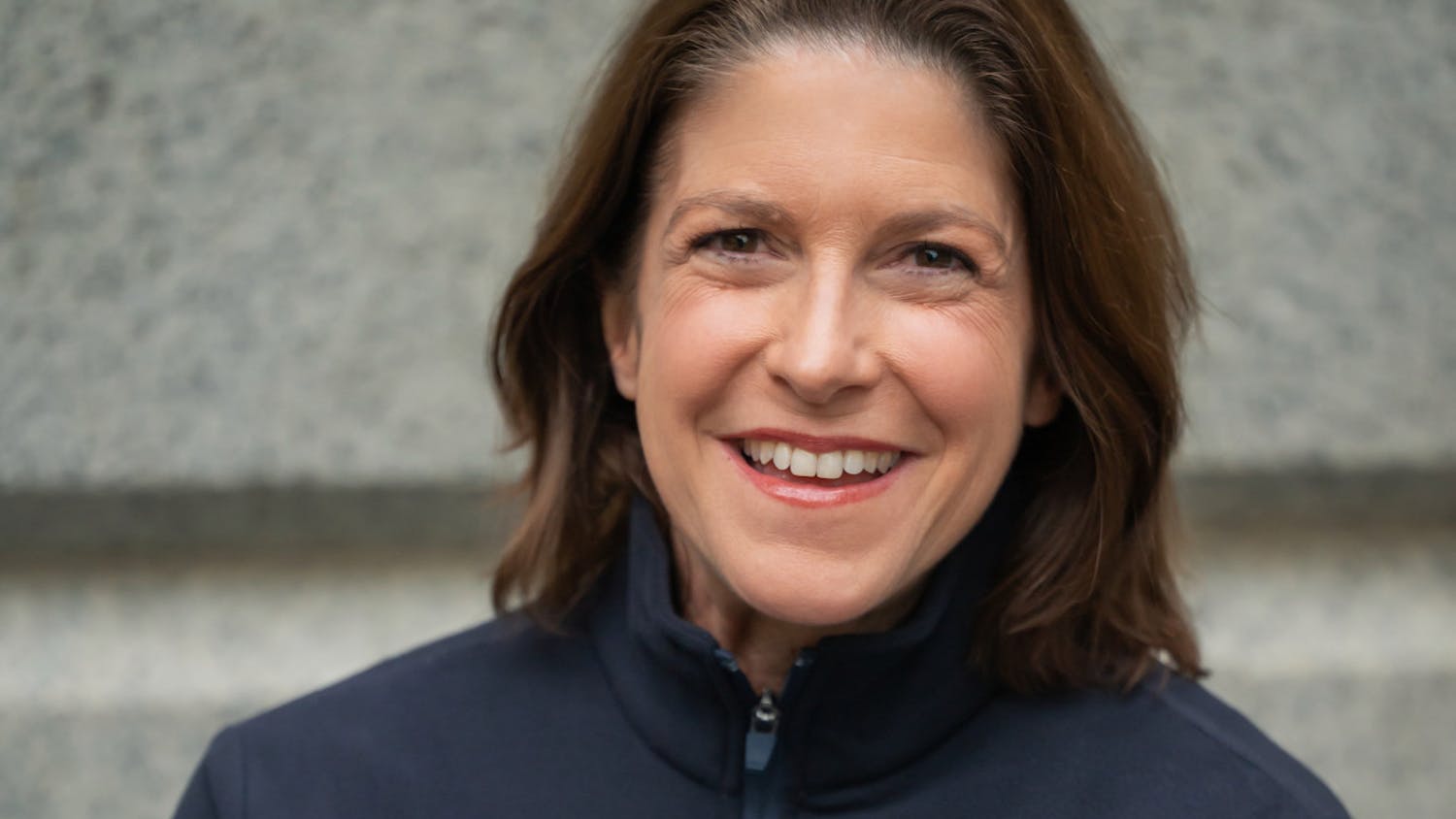Becca Heller ’05 has been named a 2018 MacArthur Fellow for her work defending the rights of refugees and other at-risk populations. As director and co-founder of the International Refugee Assistance Project, Heller explores creative ways to provide legal representation to refugees and displaced people and help them reach safety. According to the organization’s website, the project is built on a model of partnering law students with pro bono lawyers, which maximizes the usage of student or volunteer resources and minimizes business costs.
The fellowship awards recipients with a $625,000 no-strings-attached grant that supports creative pursuits in the recipients’ fields without limiting how recipients can spend the stipend. This year’s fellows were announced on Oct. 4.
The foundation does not accept applications or unsolicited nominations for the fellowship, according to its website. Award recipients go through one round of nomination, one round of evaluation and two rounds of selection before they are finally brought to the board of directors for approval. All processes are confidential and anonymous.
“It’s a completely secret, anonymous process, so everything you know is what I know,” Heller said. “I don’t know who nominated me or why.”
Heller graduated from Dartmouth with a degree in government before attending Yale Law School. According to government professor Linda Fowler, she exudes academic excellence as well as a strong, distinct personality.
“I’ve never met somebody quite like her,” Fowler said. “I guess the phrase would be ‘force of nature.’ She is incredibly energetic. She is very blunt in a way that she speaks. She’s not afraid to put herself at risk.”
On campus, Heller is recognized for her accomplishments outside of academics. She has a deep passion for and “sophistication” around social justice issues, director of Dartmouth’s Center for Social Impact Tracy Dustin-Eichler said.
“She is really capable of looking at a social issue and taking it to solutions,” Dustin-Eichler said.
Dustin-Eichler met Heller at the former William Jewett Tucker Foundation, renamed as Dartmouth’s Center of Social Impact, where Dustin-Eichler served as an advisor and Heller was involved in the community engagement and advocacy work.
According to Dustin-Eichler, Heller was passionate about food issues as an undergraduate. She started Harvest for the Hungry, a project to fight against hunger in the local low-income community. She reached out to local farmers, student volunteers, chefs and nutritionists through campus resources and local agency contacts to gather and prepare food. The project distributed over 1,500 nutritious frozen meals to local low-income residents.
“She developed that project as a result of a class that she has taken in environmental studies,” Dustin-Eichler said. “She uniquely has a skill set to see a problem, to delve in academically and dissect a problem and then implement solutions.”
At Dartmouth, Heller was a senior fellow, researching community food security. She also received a Fulbright Scholarship to work on nutrition policy in Malawi.
Heller said that her time at Dartmouth was an important journey that still impacts her life today.
“My time at Dartmouth was amazing because Dartmouth really supported me in doing pretty much what I had wanted to do,” she said. “I think Dartmouth really nurtured me to be creative and autonomous and give me the resources and direction and competence to pursue wild ideas in my head and try to bring them to fruition, and I think that’s what I’ve been able to do at IRAP.”
Heller will receive the $625,000 grant in quarterly installments over five years. She plans to use the stipend mostly on child care, student debt and other expenses.
Though the fellowship goes to individuals, the award will certainly affect Heller’s organization and may provide opportunities for fundraising.
“I am hoping that I can use some of the attention from the prize to raise money for IRAP,” Heller said.
Communications director at IRAP Henrike Dessaules emphasized the positive impact that the fellowship will have on IRAP and its work on refugee assistance.
“We definitely think this award will bring more attention to the work that we’ve been doing as an organization,” she said. “I think this is the first time that someone working in the refugee sphere has received this award. So that really shows this is an issue that people care about, and I hope that people will continue to pay attention to refugees and immigration issues at large.”
The increased attention and funding may help bolster some of IRAP’s current programs. According to Heller, these include building a litigation team to protect the rights of refugees and other displaced people.
“We will be filing a lot more lawsuits on behalf of refugees and asylum seekers,” Heller said.
Another ongoing project is developing a complementary pathway to deal with refugee resettlement in the U.S. through filing family unification petitions, Heller said.
At IRAP, Heller is a “visionary leader” who “thinks outside of the box” and is at the same time “personable,” according to Dessaules. “She’s still someone who will sit down with you for coffee and talk about many concerns that you might have at any moment.” Dessaules said.
Heller’s passion for social justice and creativity in addressing social issues is a model for the Dartmouth community, according to Dustin-Eichler.
“She is inspiring to so many Dartmouth undergraduates, who are students trying to figure out how they want to take the work that they’re doing and translate it into making a difference in the world,” Dustin-Eichler said.



